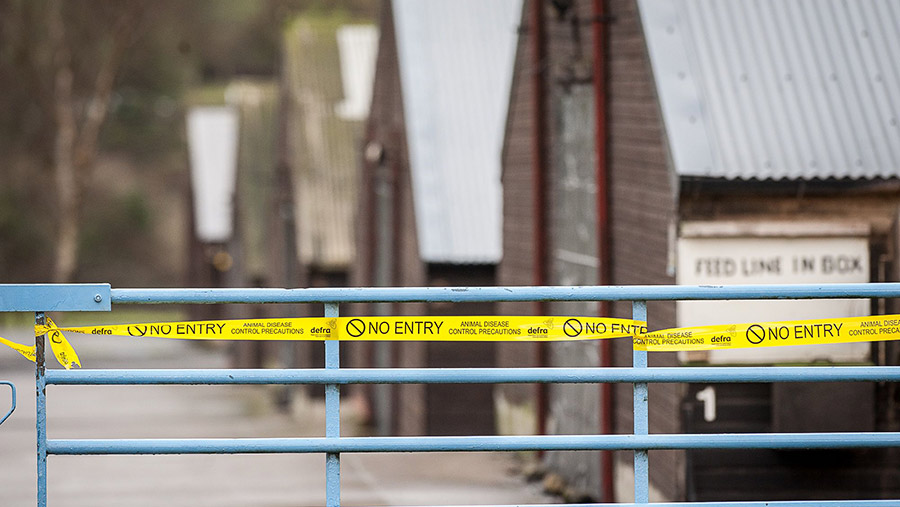Broiler breeders at heart of Scottish bird flu outbreak
 © Deadline News/Rex/Shutterstock
© Deadline News/Rex/Shutterstock The avian influenza outbreak confirmed late on Sunday evening (10 January) in Scotland was on a broiler breeder farm in Fife, the Scottish government has confirmed.
Further tests have also identified the outbreak as a “very mild” strain of H5N1 – less serious than other forms of the virus.
Poultry farmers have been told to remain extra vigilant to health concerns in flocks.
See also: New outbreak of French bird flu takes total to 65
Compulsory culling of the 40,000 birds on Craigie’s Poultry Farm, near Dumfermline, will begin within two days.

© Deadline News/Rex/Shutterstock
And a 1km temporary control zone (TCZ) has been put in place around the site, restricting the movement of all poultry, eggs, and other material.
“All the evidence so far suggests we are dealing with a very mild form of H5N1 avian influenza, which is not the same as the strain that has been causing problems in Asia and north Africa,” said Scotland’s chief veterinary officer Sheila Voas.
“Further tests are being carried out to confirm this, but in the meantime, we are taking no chances.
“We are looking into possible sources of this infection in Scotland, but it is normal for such viruses to circulate among wild bird populations, especially waterfowl. However, it is important that poultry keepers remain vigilant.”
How to spot avian influenza
There are two types of avian influenza (AI).
High pathogenic AI (HPAI) is the more serious type. It is often fatal in birds. The main clinical signs are:
- Swollen head
- Blue discolouration of neck and throat
- Loss of appetite
- Respiratory distress such as gaping beak, coughing, sneezing, gurgling, rattling
- Diarrhoea
- Fewer eggs laid
- Increased mortality.
Clinical signs can vary between species and some may show minimal clinical signs (ducks and geese).
Low-pathogenic AI (LPAI) is usually less serious. It can cause mild breathing problems, but affected birds will not always show clear signs of infection.
The severity of LPAI depends on the type of bird and whether it has any other illnesses.
There have been a number of cases of avian influenza (AI) across continental Europe in recent months, with more than 65 outbreaks in south-west France alone.
This latest UK outbreak follows three other cases in the past 14 months, the most recent being at Staveley’s Eggs near Preston in July.
That outbreak was declared officially “closed” in late November, starting a three-month clock ticking for the UK to be regarded as “avian influenza free” by the international authorities.
With this latest outbreak, many countries may not choose to accept the UK as “AI free”, and continue to restrict imports.
NFU Scotland’s vice-president Andrew McCornick called the outbreak “worrying, but not unexpected”.
“Biosecurity on all poultry units must be maintained and, given the number of low-pathogenic avian influenza cases being recorded across Europe, it is likely that those high standards are already commonplace.”
AI is a notifiable disease and anyone who suspects a bird may be affected must report it to their local Animal Plant and Health Agency (formerly Animal Health and Veterinary Laboratories Agency) office.
Contact details can be found online.
There is also a national helpline on 03459 335 577.
